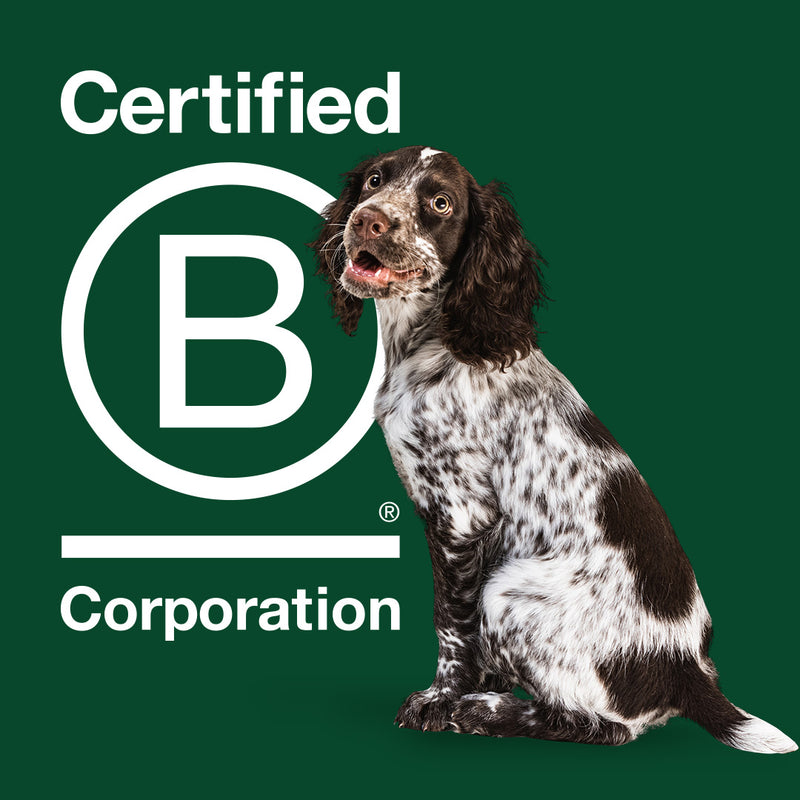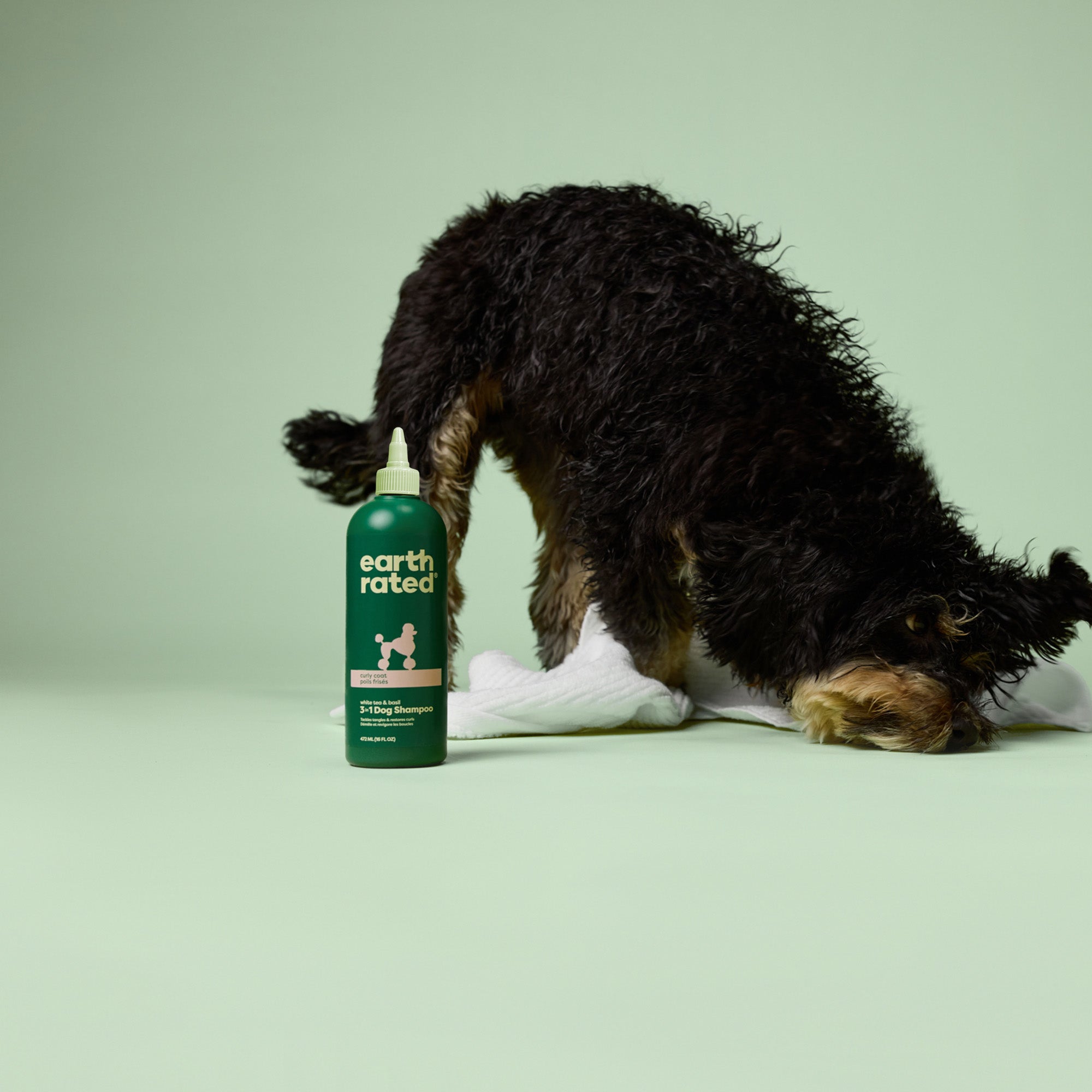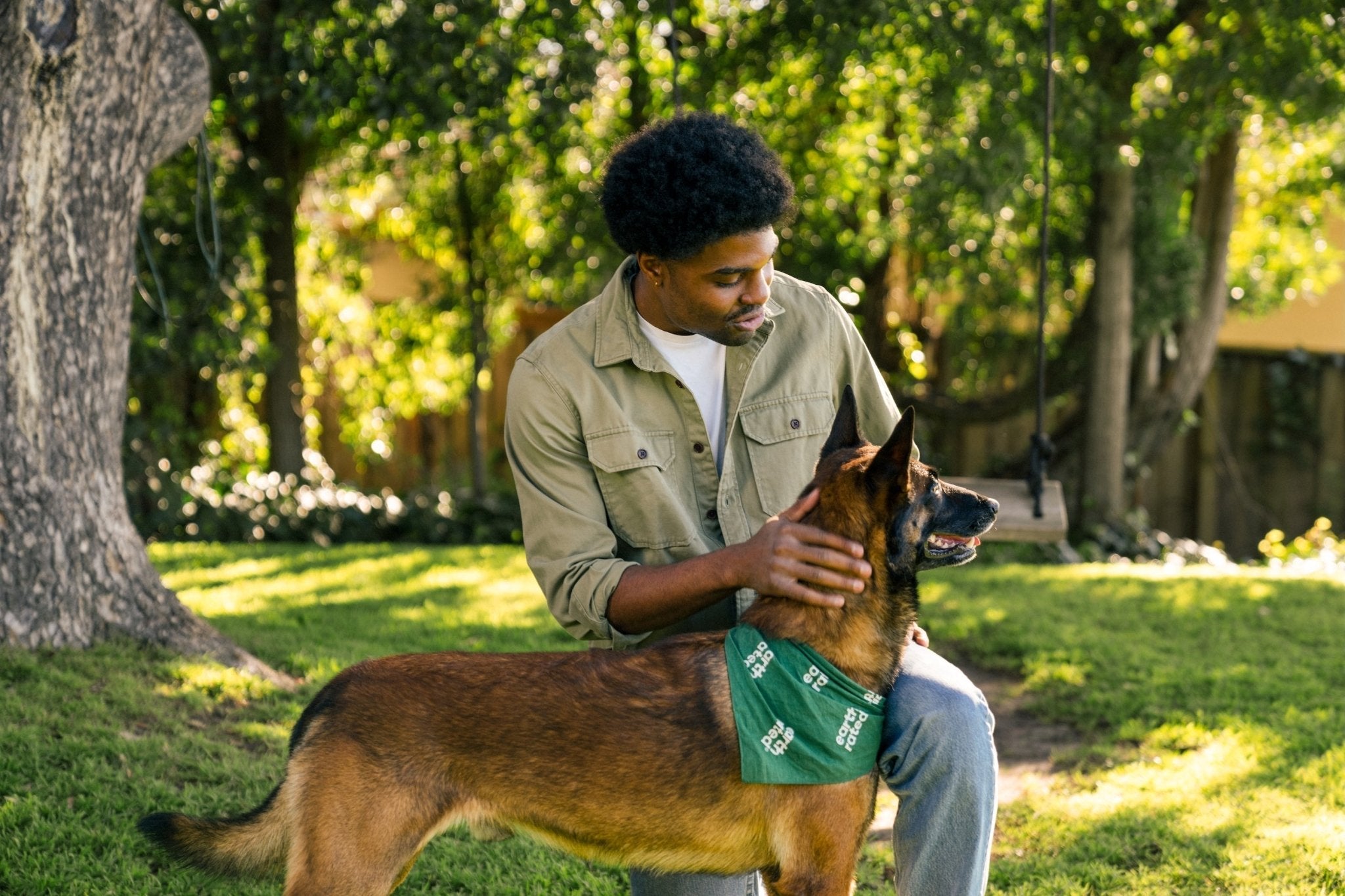Let’s be honest, a trip to the vet with your dog is rarely something to look forward to (and it can realllly hurt the bank account). But it's important to remember that vaccinations are more than just a box to tick, especially when it comes to the rabies vaccine. As a responsible dog owner, you play a vital role in preventing this disease from spreading.
“Rabies is a core vaccine, as it is deadly and a communicable disease to humans. It is also required to be kept up to date by law,” explains Isa-May Pellerin, a certified animal health technician.
Below, we’ll cover everything you need to know about the rabies vaccine for dogs, including debunking myths, and providing clear information on benefits.

First Thing First: Understanding Rabies and the Vaccine
Rabies is one nightmare you definitely want to avoid—it's so terrifying, they’ve made horror movies about it! 😱
So, what is Rabies and How Does it Affect Dogs?
Rabies is a virus that attacks the nervous system. It affects all warm-blooded creatures, including us and our dogs. Interestingly, opossums are one of the few mammals that are practically immune to rabies.
Rabies spreads through the bite of an infected animal. Once infected, the virus causes inflammation in the brain and spinal cord.
As rabies progresses, the infected animal may begin to drool and become vicious. Unfortunately, it almost always ends in death, even in humans.
Types of Rabies Vaccines
The rabies vaccine is one of the core puppy vaccinations that your dog will receive and there are several different types available.
Here are the most common options:
Both options are very effective. In most cases, veterinarians use whichever vaccine is recommended by law (which depends on your location) or whichever option they have available.
How Effective is the Rabies Vaccine?
The rabies vaccination is incredibly effective. Only around 4.9% of rabid dogs have a history or prior rabies vaccinations (and many of those were overdue for another booster).
This means that with proper vaccination, the odds of your dog getting rabies are very low. The duration of protection varies depending on the vaccine type, your dog’s age, and how many boosters your dog has received. It’s typically recommended that dogs receive a booster shot every one to three years for maximum effectiveness.
Rabies Vaccine Schedule
Now that we know why the rabies vaccine is so important let’s look at when your dog should get it.
When Do Puppies Get the Rabies Shot?
Most puppies in the United States must receive their first rabies vaccination between 12 and 16 weeks of age, depending on your location and local laws. Isa-May explains that the current schedule for the rabies vaccine is to be given at around four months of age, then again one year afterward, and every three years after that.
“Some areas may require it on a yearly basis, depending on how frequently rabies is found in the region,” notes Isa-May.
Your puppy should get their vaccine within this window for maximum protection. That said, if your dog has never gotten the rabies vaccination before, now is better than never!
Booster Shots: Frequency and Importance
Unfortunately, the rabies vaccine doesn’t last forever. Vaccines train your dog’s immune system to recognize the virus, allowing the immune system to attack it upon detection. But your dog’s immune system will slowly forget this training over time until the vaccine is no longer effective!
Therefore, regular booster shots are necessary to maintain your dog’s immunity to the rabies virus. The law typically requires that your dog receives a booster every one to three years.
The schedule is slightly different depending on the type of vaccine:
- Inactivated Rabies Vaccine: Boosters are recommended every 1-3 years.
- Recombinant Rabies Vaccine: This newer option may offer longer protection. Depending on the specific vaccine and state regulations, boosters may be needed every 3 years or even longer.
Why does it change depending on the vaccine? Each vaccine works differently and wears off at a different rate. If your dog is receiving a different vaccine that’s less common, speak with your vet about the recommended booster schedule.
Legal Requirements for Rabies Vaccination in Different US Regions
Rabies vaccination is a legal requirement across most of the United States, but these regulations vary widely depending on your area. It’s important to check your local laws to understand the exact requirements in your area. Your vet will also be able to advise on local laws regarding rabies vaccination.
Typically, the laws involve these aspects:
- The minimum age for the first vaccination
- Booster shot frequency
- Any exemptions or special considerations
Below is a general guideline of what’s required by law but this may differ from your area’s specific regulations:
|
Age |
Rabies Vaccination Schedule |
|
12 - 16 weeks -> |
First rabies vaccination |
|
1 year later -> |
First booster shot |
|
Thereafter -> |
Booster shots every 1-3 years |
Benefits of Rabies Vaccination
The main benefit of rabies vaccination is avoiding this awful disease! But, there are some other reasons why your dog being vaccinated against rabies is beneficial.
Protecting Your Dog and the CommunityAs we've covered, rabies spreads very easily. So, when you vaccinate your dog, you are protecting not only your dog but also the rest of the community. While rabies is preventable with the vaccine, not everyone can get vaccinated.
It isn’t odd for humans to not even realize they’ve been bitten (or not realize that they need to seek medical treatment for minor bites).
By vaccinating your dog, you’re providing a barrier to protect the rest of your community.
Legal RequirementsYes, you want to vaccinate your dog to protect them from rabies but there are legal requirements, too. In most parts of the United States, rabies vaccination is a legal requirement for dogs.
Proof of vaccination is required to keep you on the right side of the law! Otherwise, you may face potential fines (and headaches). In some case, you could even lose ownership of your dog.
Vaccinations are also required for travel in most cases. If you ever want to take your dog on an airplane, their rabies vaccination must be up-to-date.
Peace of MindLet's face it, as pet parents, our dog’s well-being is our top priority. Rabies is a scary disease, and the thought of our dog even being exposed is enough to send shivers down our spines. The rabies vaccine provides protection against the rabies virus that’s impossible to get otherwise!
Knowing your dog is protected from this awful disease helps you relax more.
Possible Side Effects and Management
“Adverse reactions can happen in any dog, but the Rabies vaccine is usually well tolerated by the majority,” explains Isa-May.
If your dog does happen to develop side effects, fear not! They’re typically very short-lived. Common side effects include:
- Mild loss of appetite
- A temporary decrease in energy levels
- Slight soreness or swelling
Rarely, more serious side effects can occur. These are very rare and usually not dangerous. Still, when it doubt, contact your vet if your dog experiences:
- Facial swelling
- Difficulty breathing
- Vomiting or diarrhea
After getting vaccinated, your dog generally doesn’t need to be treated any differently. Most can go about their normal day. Rest and relaxation are recommended, if only because vet visits can be stressful. Don’t expect your dog to do anything else stressful during that day, especially if they don’t like the vet!
Training your puppy can help them stay calm during vet visits, lowering the stress surrounding the vaccine.
You can feed and offer water to your dog as normal. Loss of appetite can occur, but it isn’t so serious that your dog won’t eat. Instead, they may just eat slightly less than usual.
You should also avoid strenuous exercise for a day or two after a vaccination. Like us, your dog may be sore in the muscle where they received the vaccination. Usually, this soreness isn’t very serious, but it can inhibit their ability to exercise for a day or so.
Ease post-vaccine stress with engaging play. Check out Earth Rated's dog toys, perfect for a bit of mental stimulation which can be comforting to your pup.
Shop Dog Toys
Legal and Ethical Considerations
Laws regarding rabies vaccines do exist - and for a good reason! The laws do differ a bit depending on where you are. Areas without rabies tend to have very strict regulations, while areas with “wild” rabies tend to have less. We highly recommend checking your particular area’s laws.
Here are some common reasons rabies vaccination laws are made:
The best way to stay on the right side of the law is to speak with your veterinarian. They can give you specific details about when your dog needs the vaccine (and how you can keep proper records of this).

At the end of the day...
The rabies shot for dogs is an incredibly important vaccine that protects against a deadly disease that can also spread to humans. By getting your dog properly vaccinated, you not only protect your dog but also yourself and anyone else your dog comes into contact with.
Modern rabies vaccines are extremely effective. But, regular boosters are necessary for the vaccine to remain effective. Most vets recommend that your dog receive a booster every one to three years.
Remember, getting your dog vaccinated is a legal requirement in many areas. When in doubt, you should speak with your vet about the legal requirements in your local area and the best vaccination schedule for your dog!
FAQs
How long is a dog's rabies vaccine good for?
A dog’s rabies vaccine is typically good for 1 to 3 years, depending on the type of vaccine given previously.
When should a dog get an anti-rabies vaccine?
A dog should get their first anti-rabies vaccine at about 12-16 weeks of age. They should get this vaccine at the same time as the other core puppy vaccines.












